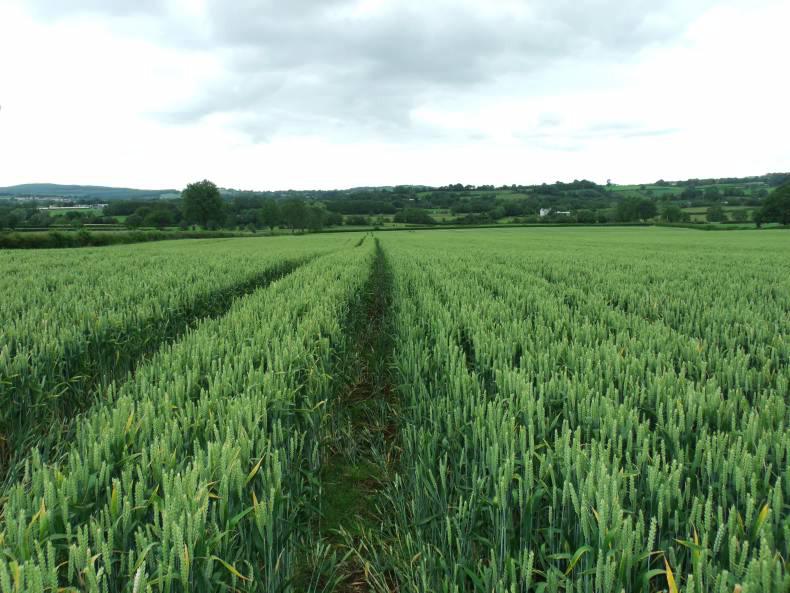Post-Brexit, the UK – as a member of the World Trade Organisation (WTO) – will be bound by WTO rules when it comes to trading in goods and services with other countries.
To assess the implications for agriculture, specialists at the Agriculture and Horticulture Development Board (AHDB) have looked at the issue in more detail, highlighting that it is a complex area, which will dictate what is and isn’t possible, post-Brexit.
At present, the WTO has 164 members, covering 95% of world trade, and is the main forum for countries to create international trade deals.
The WTO works to a number of key principles, including promoting fairer competition and freer trade through liberalisation of rules.
One area where this is perhaps most evident are the rules around agricultural support, with trade-distorting subsidies capped by the WTO at 5% of the country’s total agricultural production. The argument is that subsidies such as coupled payments, headage payments or intervention buying (classed as ‘‘amber-box’’ measures), lead to overproduction and squeeze out imports. Therefore, there is limited scope for the UK to move back towards headage-type payments in a new British agricultural policy post-Brexit (although in theory, because NI is a small part of the UK, we could probably adopt some coupled payments so long as other UK regions didn’t).
However, the current system of direct (decoupled) payments linked to land area is not seen as trade distorting (classed as ‘‘green box’’) and are not restricted under WTO rules. “The UK does not have a completely free rein when designing a domestic policy on agricultural supports,” notes the AHDB report.
Schedules
When it comes to trade, members of the WTO set out their positions and commitments by way of a set of WTO schedules, to include maximum tariff levels on imports.
At present, the UK as part of the EU applies the EU’s set of WTO schedules, and it is expected that the British government will replicate this existing trade regime post-Brexit.
Agricultural goods tend to attract some of the highest tariff levels, and a country currently exporting into the EU without a free trade deal faces a significant tariff wall (for example: 74% tariff on fresh milk (around 20p/l); 51% tariff on fresh lamb (around 240p/kg); 53% tariff on wheat; 65% tariff on fresh beef; 42% tariff on cheese).
If the UK drops out of the EU without a free trade agreement (or some sort of transitional trade deal) then these tariff rates would apply to exports into the EU, and trade in the opposite direction. It would also create significant issues for trade across the Irish border.
Quotas
The rules also allow countries to set tariff rate quotas (TRQs) which generally allow a certain amount of product in at low or no tariff rates. For example, the EU currently has an agreement with New Zealand to allow approximately 230,000t of lamb into the EU each year at zero duty. Establishing the UK’s own TRQ’s post-Brexit (taking into account UK imports of goods subject to existing EU TRQs) will be complicated.
Technical
But, perhaps, the most difficult aspects of world trade are not tariffs or quotas but technical barriers. Under WTO rules, a country can set its own standards in the area of food safety as well as animal and plant health. These standards should be based on sound science.
Recent examples where standards were used to block trade were the ban on British beef due to BSE, and the refusal of the EU to accept hormone treated beef from the US. As noted in the AHDB report, the scientific evidence on the health risks of eating hormone treated beef is scant, and it remains an on-going dispute between the EU and the US. “Would the UK have the scope to defend a ban on hormone treated beef?” question the authors of the AHDB report.
Free trade
At present, the EU has around 50 free trade agreements with countries and different trading blocks around the world. Ideally the British government would like to simply adopt these current agreements on leaving the EU, although that might not be possible in some cases.
Outside of the EU (assuming the UK leaves the EU single market and customs union) the UK will then be able to negotiate its own trade agreements, but it can be a slow process, and could leave farmers exposed to cheap food imports.






 This is a subscriber-only article
This is a subscriber-only article









SHARING OPTIONS: